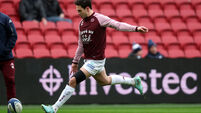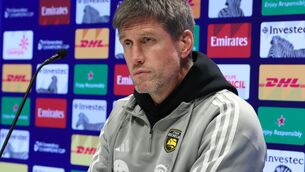Basque brothers, Catalan cousins
APRIL 2005. Seems like an age ago, doesn’t it? Tony Christie was top of the charts with ‘Is this the way to Amarillo’, the Celtic Tiger was still roaring, and Munster took on Biarritz in what was to be first professional rugby match ever played in Spain.
Rugby became a little less parochial that day as upwards of 10,000 Munster supporters descended on San Sebastian for a Heineken quarter-final that marked the end of an era for Alan Gaffney as coach of the Irish province. However it forged the beginnings of a love affair between Biarritz and its Spanish-Basque neighbour, a relationship that is now being cultivated by the Catalans of Perpignan and Barcelona.















